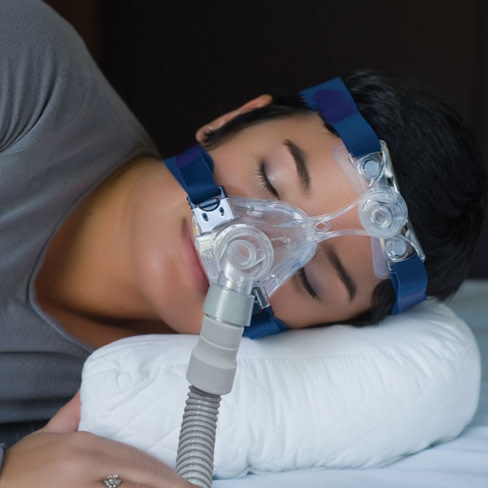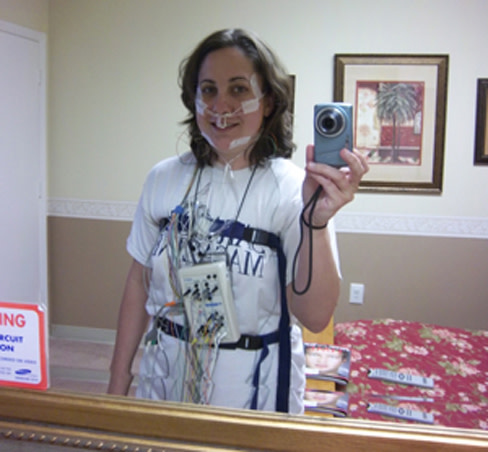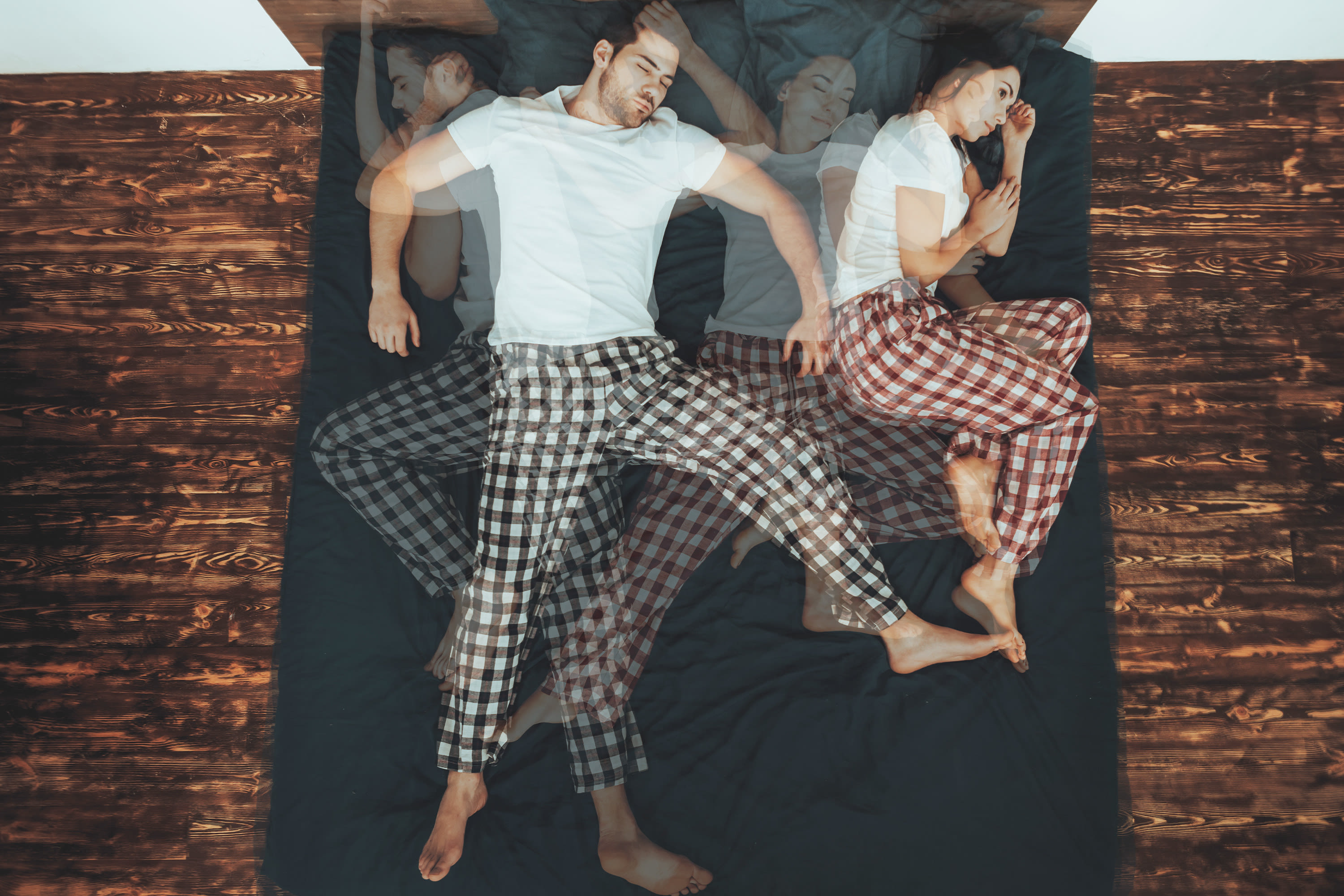Sleep Apnea

The standard nasal CPAP headgear.
I’ve always snored like a mofo. As a kid, I was tormented by fellow campers and sisters alike, who would wake me up to complain about the snoring when it seemed to me I hadn’t even fallen asleep yet. (My college roommate was deaf in one ear; small blessings.) And there’s a famous story from a hockey tournament a few years ago where a teammate, awakened by the racket, initially assumed it was coming from her 6’5” 300-lb. husband. Nope: little ol’ me.
It wasn’t really a problem for me. All it did was bother other people while I slept soundly. Or so I thought.
But then my father, who was long known as our family’s champion snorer, was diagnosed with sleep apnea. He’d decided to go to the sleep clinic not long after NFL legend Reggie White died in 2004 at the age of 43, his death caused in part by complications from sleep apnea. (His wife founded the Reggie White Sleep Disorders Foundation in his honor.)
According to the National Institute of Health, in addition to risks associated with excessive tiredness, sleep apnea can:
- Increase the risk of high blood pressure, heart attack, stroke, obesity and diabetes
- Increase the risk of, or worsen, heart failureMake arrhythmia, or irregular heartbeats, more likely
Finally, a year or two ago, I asked my GP to steer me to a sleep clinic. The experience really isn’t much fun, and I had to go twice—once to (try to) sleep with miles and miles of wires and sensors stuck to me, and a second time to do a test run with a CPAP—or Continual Positive Airway Pressure—a breathing mask that forces a gentle stream of air into your nose so that your airway doesn’t collapse and cause the lapses in breathing.

All dolled up for my sleep study.
The CPAP is hard to get used to. The first few times I put it on, it emitted weird sounds—rushes of air or whistles when I exhaled—and it was hard to get the seal right. If the mask isn’t snug and in the precise right position on your face, air escapes in streams that can tickle your neck or, say, puff right into your eye in the middle of the night. (I also had a tendency to tear it off while unconscious and wake up with it whooshing harmlessly on the floor.)
But the first time I fell asleep for any significant amount of time while wearing it, I woke up feeling like I’d slept heavy for hours and hours. Then I looked at the clock: It was 1:30 a.m. I’d been asleep for a little over two hours. (Heh, that happened to me last night, too; I was poised to hear my alarm go off, but then I looked at the clock: It was 4 a.m.)
What’s also really cool is that I’d always slept with my mouth wide open, but the CPAP, which only fits over my nose (though there are full-face versions available), only works if your mouth is closed (otherwise there’s this weird wind-tunnel effect with the air flowing into your nose and out your mouth). After getting used to that, nowadays, even if I’m not wearing the machine, I’m much more likely to sleep with my mouth closed, breathing through my nose alone. My mom confirmed the difference during a hotel stay a little while ago: hardly any snoring.
I was also really fascinated last year when Dr. Jill Morris told me about new evidence suggesting that a too-small dental arch can be to blame for apnea.
When I thought about it, I’ve actually noticed that: When I sleep a full night wearing the CPAP, my front teeth feel…different. I’m sure it’s because, with my mouth closed the whole time (and my nose receiving constant airway pressure), my tongue doesn’t have anywhere to go, so it pushes forward against my teeth.
All part of a good night’s sleep.
To read Hannah Wallace's "Health Report" in our March issue, click here.



